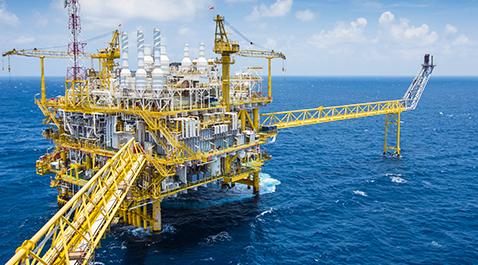

Lip seals are designed to close spaces between both stationary and moving components. Primarily, lip seals prevent lubricant leakage, though they also act as a barrier to prevent contamination. A lip seal itself is a simple component, which often performs as intended at initial installation, and degrades – sometimes quickly – after installation.
The patented design of Centritec Seals offers a variety of operational and performance benefits compared to types of lip seals, and are quickly becoming the preferred sealing solution for a variety of applications.
Centritec Seals offer superior performance and critical reliability benefits when compared to lip seals. By reducing maintenance and downtime that can occur when lip seals fail, Centritec Seals can help to reduce costs, and are ideal for applications with long run times.
Centritec Seals feature an internal, centrifugal pressure sealing method that allows these seals to operate with much greater efficiency than lip seals. As Centritec Seals rotate, a pressurized barrier is created that keeps lubricant in and contaminants out. The controlled fluid cavity between the seal’s inner race and outer race results in a non-contact operation, eliminating wear and significantly reducing friction. This reduction in friction also increases efficiency and, in some applications, allows for lower lubricant fluid levels or lubrication with very low viscosities.
Lip seals, by comparison, require that the seal be in direct contact with the machinery – be it a rotating shaft or bearing housing – to prevent leakage. The direct contact of the lip seal and the equipment (which is vibrating and/or moving) can quickly lead to wear, shortening lifespan of the seal and equipment (shaft) and effecting seal integrity. Lip seal contact friction also results in parasitic drag, further reducing efficiency.
Centritec Seals are manufactured using a metal housing and metal interior components. Their non-contact, centrifugal construction was specifically developed to withstand continuous, high-speed operations with a self-venting, frictionless design.
Types of lip seals are commonly produced using rubber or plastic materials to form the seal between the rotating and nonrotating surfaces, this contact surface is prone to wear and shafts are typically hardened. This wear is often furthered by environmental conditions, including exposure to temperature fluctuations, moisture, freezing and dirt. Rubber and plastic materials are especially susceptible to this type of damage from exposure, and can cause a lip seal to deteriorate, crack or structurally fatigue.
The standard materials used to manufacture lip seals often shorten lifespan and increase downtime, resulting in a total cost that is much higher than often anticipated by the engineer.
With lip seals, proper alignment is crucial to installation. It is critical that the seal lip sit properly on the shaft and that a film of oil be maintained between the lip seal and the shaft. While an improperly aligned lip seal can leak immediately after installation, often it is only after exposure to vibration and application conditions, that lip seal alignment issues become apparent.
By design, Centritec Seals support flexible axial alignment and require less maintenance and monitoring. Additionally, these seals can be installed both in horizontal and vertical applications, providing additional design flexibility compared to lip seals.
The following comparison represents common types of lip seals and applications, and is meant as a general reference of the performance characteristics between non-contact Centritec Seals and typical lip seals.
Operating Parameters |
Centritec Seal |
Lip Seal |
Sealing Method |
Centrifugal pressure |
Force fit contact between seal and shaft |
Degree of Contact |
100% Non-Contact |
100% contact with shaft |
Speed |
Up to 50,000 rpm |
Dependent on material (plastic or rubber) & diameter, typically less than 2500 rpm |
Friction |
Zero |
High (speed related) |
Lubricants |
Oils, greases, water, gases |
Oil, grease, water |
Operating Pressures |
Speed dependent with 0 to 50 psi |
2.5 psi |
Vibration |
Completely tolerant |
Limited tolerance |
Alignment |
Non-dependent |
Precise alignment, oil film required |
Heat Buildup |
Self-venting & purging |
Not self-venting or purging |
Temperature Range |
Up to 650°F |
Based on material, up to 212°F for typical nitrile rubber, up to 480°F for PTFE |
Power Loss |
None |
By friction |
Installation |
No special tooling |
Tooling required, shaft cleaning often required |
If you have questions regarding centrifugal seals vs the types of lip seals, contact us for more information or to discuss how Centritec Seals can replace your current lip seal components. We look forward to learning more about your application requirements and how our solutions can meet your needs.